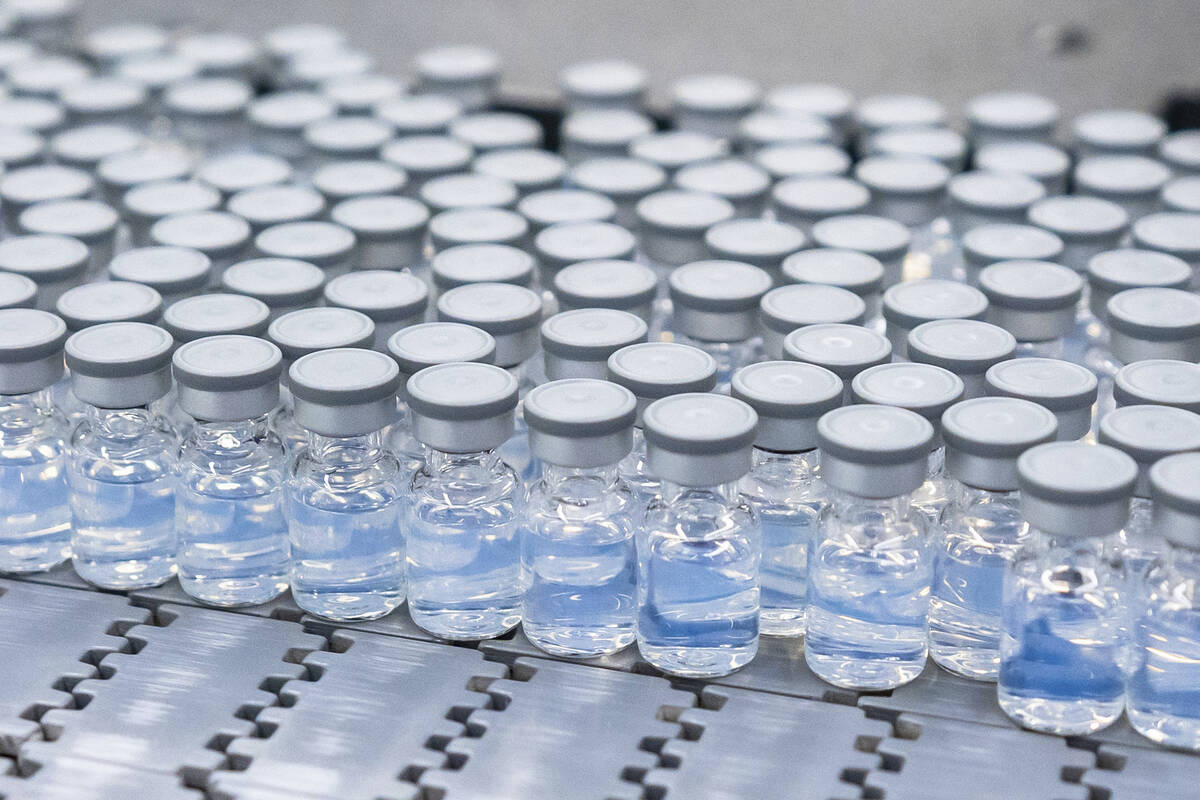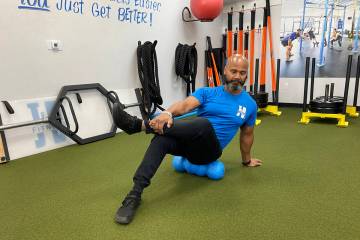Can you delay getting a COVID booster? Or skip it altogether?
Demand for the updated COVID-19 booster, first offered earlier this month, has been low so far at the Southern Nevada Health District.
The ho-hum response may be due in part to pandemic fatigue as well as weariness with getting shot after COVID-19 shot, said Dr. Cort Lohff, chief medical officer for the health district.
Too, “it’s possible that people may want to wait to get it, which is certainly acceptable,” Lohff said. As of Friday, the district had administered 832 updated boosters since Sept. 8.
So, what do health officials consider good reasons to delay a booster?
And can some people skip getting one altogether?
It depends on who you ask.
Who can get one, and when?
The Food and Drug Administration authorized the Moderna bivalent booster for those 18 and older and the Pfizer-BioNTech booster for those 12 and older.
“Bivalent” refers to how the updated formula is essentially two vaccines in one, with genetic material to protect against both the original strain of the virus as well as omicron subvariants BA.4 and BA.5 that currently are circulating
A bivalent booster can be given at least two months after the primary series of vaccination or a previous booster dose, according to the FDA.
“As we head into fall and begin to spend more time indoors, we strongly encourage anyone who is eligible to consider receiving a booster dose with a bivalent COVID-19 vaccine to provide better protection against currently circulating variants,” said FDA Commissioner Dr. Robert M. Califf.
What if I just had COVID-19? Or a COVID shot?
Many public health authorities say that people can wait 90 days after a COVID-19 infection to get a booster, with little risk of reinfection.
Delaying a booster for three months after infection may also result in an improved response by the immune system to vaccination, Lohff said, citing guidance from the CDC.
Epidemiologist and data scientist Katelyn Jetelina advises that those at high risk, or with an upcoming event planned, should get a booster three to four months after either an infection or vaccination.
The author of the “Your Local Epidemiologist” newsletter recommends that everyone should get a shot six months after an infection or vaccination.
Should I wait until the holidays?
COVID-19 case rates and hospitalizations currently are relatively low in Southern Nevada and much of the U.S., which could decrease the urgency of some to get a booster. However, cases are projected to climb as we get into fall and winter.
Does it make sense, then, to wait to get boosted until closer to the holidays, since studies suggest that antibodies from a shot can fade within a few months?
One problem with this approach, Lohff said, is the uncertainty of when another surge in cases might come. Wait too long to get boosted and it might be too late, since it takes a couple weeks for a booster to reach peak effectiveness.
The question is similar to that of timing a flu shot, he said. Health authorities recommend that people get their annual flu shot in September or October, even though the height of flu season may not come until December or January.
“We kind of hedge our bets by recommending that people get vaccinated (against the flu) much earlier versus waiting till much later,” Lohff said. “I think we can apply the same logic to the COVID booster.”
Although many authorities stress there’s risk in holding off, others say the risk for some is small.
George Washington University’s Dr. Leana Wen told MedPage Today that people who’ve had a booster or were infected in 2022 “can probably wait and time their next shot to before the holidays.”
Who needs a booster most – and least?
Dr. Paul Offit, director of the Vaccine Education Center at Children’s Hospital of Philadelphia, said that CDC data indicates that people 75 and older are among those who would most benefit from a booster. Also, most benefiting are those with serious health problems, such as chronic lung or kidney disease, and those who have compromised immune systems. These groups are more likely to require hospitalization if they become infected.
“If we make the assumption that the virus will be more prevalent in the winter months, and it’s been at least six months since you’ve had a vaccine, it’s probably reasonable” to get a booster if you fall within one of these groups, he said.
But Offit, who has been critical of the overall COVID-19 vaccination strategy, said data also suggests that vaccinated younger, healthier people generally don’t need a booster to protect them against serious disease. For them, though antibodies that protect against mild disease wane, the immune system’s memory cells continue to offer protection against severe disease, he said.
For Offit, a member of a vaccination advisory panel to the FDA, the only reasonable – and obtainable – goal of COVID-19 vaccination is to protect against serious illness, and not mild infection.
Trying to keep the entire population’s antibodies high to prevent mild infection is “just not a sustainable public health strategy,” he said, one that would require boosting everyone a couple of times a year. Instead, he favors focusing on getting boosters to more vulnerable people.
Offit, 71, has had the primary vaccine series and one booster, along with a mild case of COVID-19. He does not plan to get another booster until there is convincing evidence that he isn’t protected against serious disease, he said.
However, many authorities urge erring on the side of caution. And, perhaps to avoid confusion, put things in simpler terms.
“If you are eligible, there is no bad time to get your COVID-19 booster and I strongly encourage you to receive it,” said CDC Director Dr. Rochelle Walensky.
Contact Mary Hynes at mhynes@reviewjournal.com or 702-383-0336. Follow @MaryHynes1 on Twitter.























